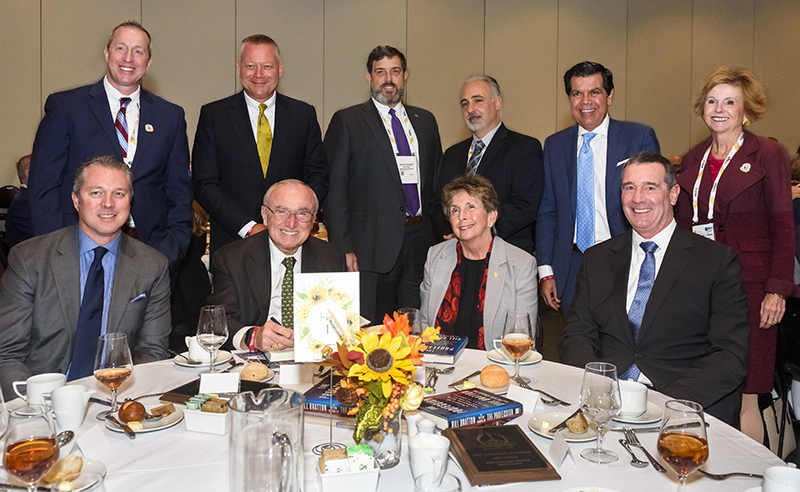
Nine alleged Kansas City gang leaders and members were charged in a sweeping federal indictment for their roles in an ongoing criminal enterprise that involved armed violence, including a murder conspiracy, drive-by shootings, and illegal drug trafficking.
That indictment was unsealed and made public upon three defendants’ arrests and initial court appearances.
The following individuals were charged in a six-count indictment returned under seal by a federal grand jury in Kansas City on Aug. 17, 2023.
-
Steven K. Lee, aka “Bizzle” and “SB,” 38
-
Charles V. Williams, aka “Cheese” and “Chucky D,” 35
-
Travis L. Cook, aka “Trav,” 30
-
Richard B. Johnson, aka “Scritch” and “Rich,” 24
-
Deion D. Alford, aka “Wommy,” 23
-
Ewon R. Kelley, aka “Won,” 33
-
Myreku L. Frazier, aka “Rekus,” 30
-
Anthony D. Hunter, aka “Dee,” 25
-
Jacequin Boswell, aka “Nunu” and “Noodles,” 30
Lee, Williams, Cook, Kelley, and Hunter were all arrested in an operation on Aug. 24, 2023.
Johnson and Alford are already in custody in connection with other charges. The operation involved more than 140 law enforcement officers from multiple local and federal agencies and searches of 16 residences associated with gang members.
During the searches and arrests, law enforcement seized approximately 27 firearms, two machine guns, 1,069 rounds of ammunition, cocaine, heroin, fentanyl, marijuana, and bulk cash associated with the gangs.
Additional seizures are still in the process of being logged into evidence.
Seven of the defendants, according to the indictment, Lee, Johnson, Alford, Kelley, Frazier, Hunter, and Boswell, were members of an organized criminal enterprise, a gang called the Park Side Greasies, which is centered around the intersection of 33rd Street and Park Avenue in Kansas City.
Members of Park Side Greasies allegedly engaged in acts of violence, including murder, conspiracy to murder, armed assault and robbery, and drug trafficking.
According to the indictment, Lee is the leader of Park Side Greasies. Williams leads Click Clack Gang, and Cook leads South Benton Gang.
Members of the three gangs maintain regular communication and frequently cooperate for illegal drug trafficking and violent crimes, creating a confederation of gangs known as South Park Click.
The gang alliance was memorialized in a 2013 song entitled “For Da 30’s,” the indictment states, which includes the verse “South Park Click. That’s South Benton, Park, and Click Clack. If somebody got shot, close your mouth – we probably did that. McDonald’s or Wendy’s, we don’t give a (expletive). You won’t move until the paramedics pick you up.”
Leaders, members, and associates of the criminal enterprise promoted a climate of fear in the community through repeated waves of gunfire, assaults, and destruction of property, among other crimes of violence and intimidation, the indictment states.
They used and threatened to use physical violence to suppress challenges from rival criminals and others who threatened the enterprise. They enhanced their reputation for violence by killing, attempting to kill, and violently confronting people who challenged them.
They enriched themselves and funded the operations of the criminal enterprise with the proceeds of illegal drug trafficking, robbery, and burglary.
The indictment charges all nine defendants in one count of participating in a racketeering conspiracy since at least Jan. 1, 2008. They allegedly engaged in a pattern of racketeering activity, including multiple acts and threats of murder, robbery, and drug trafficking as part of the criminal enterprise.
The indictment charges all nine defendants with one count of participating in a drug-trafficking conspiracy since at least Jan. 1, 2008. They allegedly conspired to distribute cocaine, crack cocaine, methamphetamine, fentanyl, heroin, PCP, alprazolam, oxycodone, and marijuana.
The indictment charges Lee, Johnson, Alford, Kelley, Hunter, and Boswell in one count of participating in a murder conspiracy since at least Dec. 8, 2017, in aid of the racketeering enterprise.
Lee allegedly issued a contract for the murder of a rival gang member. Boswell located and attempted to shoot the victim in the area of 34th Street in Kansas City, but the victim successfully fled. Hunter shot at the victim on Dec. 30, 2018, reporting to Lee that they had “exchanged metal.” Kelley located the victim on Jan. 1, 2019, but could not execute the contract because too many people were around.
On Jan. 28, 2021, Johnson allegedly fired on multiple vehicles, believing them to be occupied by rivals, causing an injury to an uninvolved citizen and damaging property. Johnson is charged with one count of aiding and abetting another person to attempt to murder and to assault another person with a dangerous weapon, a Glock 9mm handgun. He is also charged with one count of using a firearm during a crime of violence and one count of being a felon in possession of a firearm.
The charges contained in this indictment are accusations and not evidence of guilt. Evidence supporting the charges must be presented to a federal trial jury, whose duty is to determine guilt or innocence.
Assistant U.S. Attorney Byron H. Black and Assistant U.S. Attorney Stephanie C. Bradshaw are prosecuting this case.
It was investigated by the Bureau of Alcohol, Tobacco, Firearms and Explosives (ATF) and the Kansas City Police Department in Missouri.
(Federal agencies are partnering with law enforcement to create the KC Metro Strike Force, the largest joint task force in Kansas City history. Courtesy of KMBC 9 and YouTube.)
This prosecution was brought as a part of the Department of Justice’s Organized Crime Drug Enforcement Task Forces (OCDETF) Co-located Strike Forces Initiative, which provides for establishing permanent multi-agency task force teams that work side-by-side in the same location.
This co-located model enables agents from different agencies to collaborate on intelligence-driven, multi-jurisdictional operations against a continuum of priority targets and their affiliate illicit financial networks.
These prosecutor-led co-located Strike Forces capitalize on the synergy created through the long-term relationships that can be forged by agents, analysts, and prosecutors who remain together over time, and they epitomize the model that has proven most effective in combating organized crime.
The principal mission of the OCDETF program is to identify, disrupt, and dismantle the most serious drug trafficking organizations, transnational criminal organizations, and money laundering organizations that present a significant threat to the public safety, or national security of the United States.
(The Organized Crime Drug Enforcement Task Forces (OCDETF) at the U.S. Department of Justice is the linchpin of the Attorney General’s strategy to combat transnational organized crime (TOC) and to reduce the availability of illicit narcotics in the United States by using a prosecutor-led, multi-agency, intelligence-driven approach to the identification, targeting, disruption, and dismantlement of large-scale TOC networks and drug-trafficking cartels. Courtesy of WebsEdgeSociety and YouTube. Posted on Oct 15, 2022.)
ATF Director to Deliver Keynote at 2023 ‘ASTORS’ Homeland Security Awards Ceremony

















